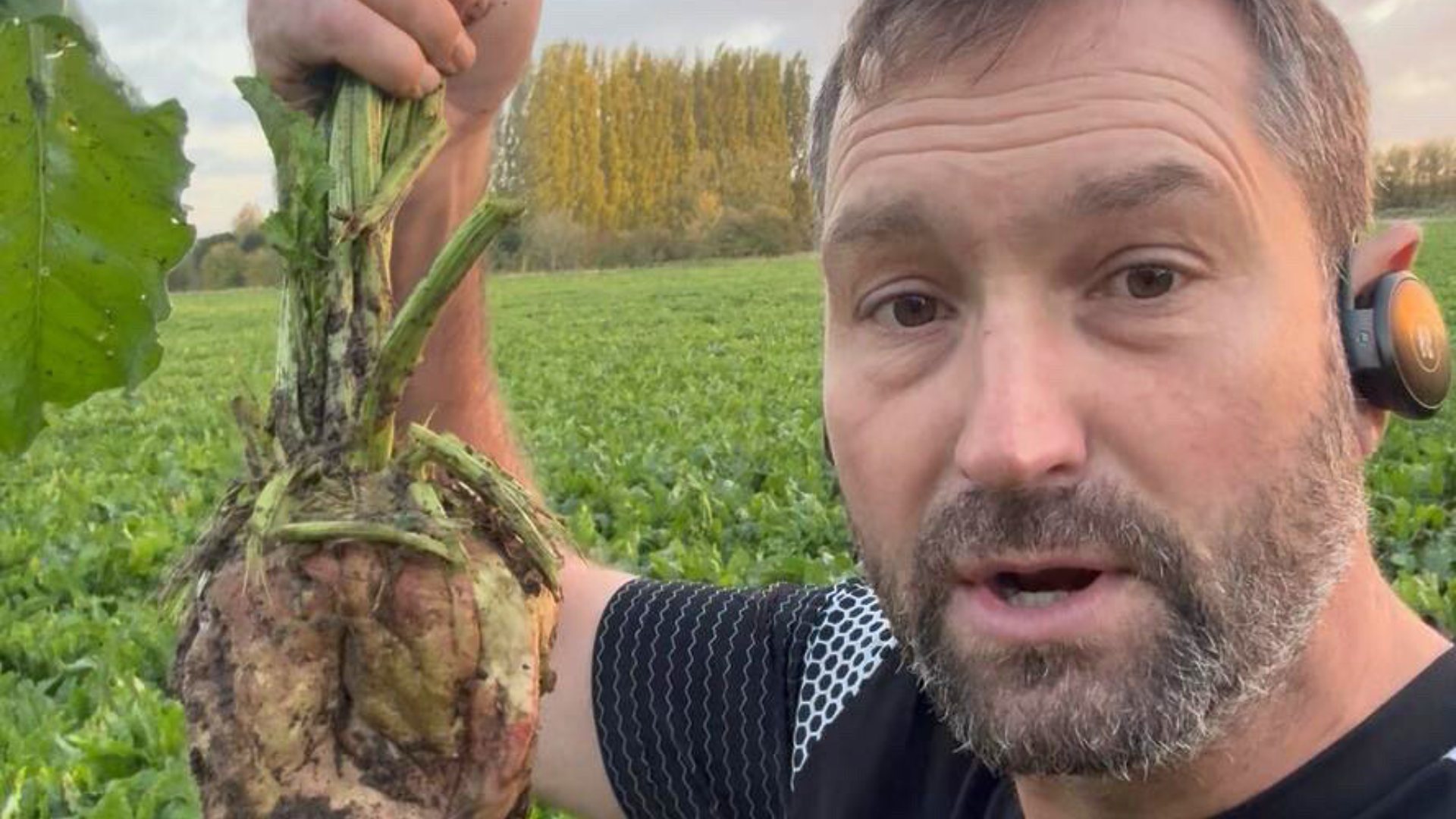Town's sugar beet factory marks centenary
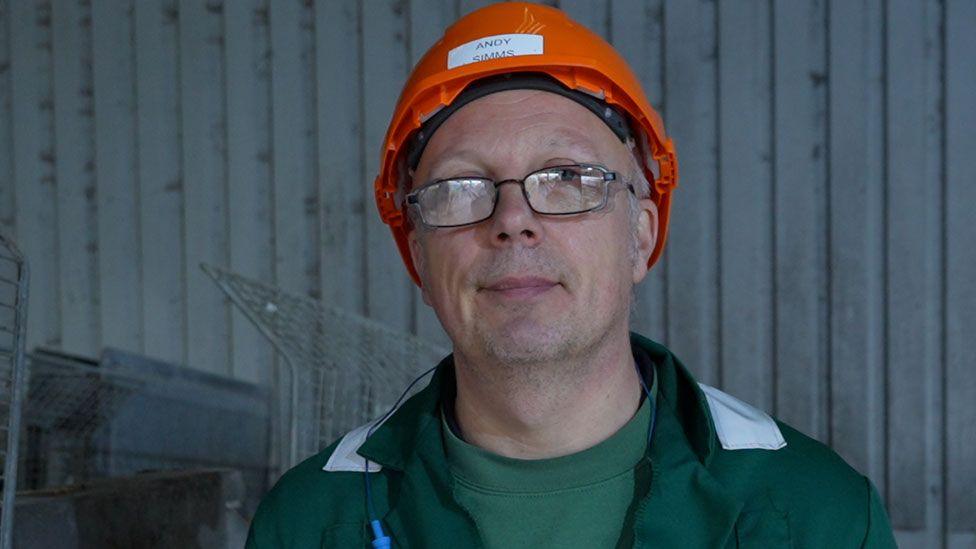
A century on, sugar is just one of the factory's products, said site general manager Andy Simms
- Published
A factory that produces about 320,000 tonnes of sugar every year is marking its centenary.
However, working life at the British Sugar factory in Bury St Edmunds, Suffolk, has undergone a significant transformation in the last 100 years, and the facility also generates electricity and sells animal feed, according to site general manager Andy Simms.
"There's a lot less people and it's a lot more automated - both at the factory and the inbound supply chain from the growers," he said.
The company is the only processor of the UK's beet sugar crop, and it works with about 2,300 growers in the East of England, the East Midlands and Yorkshire.
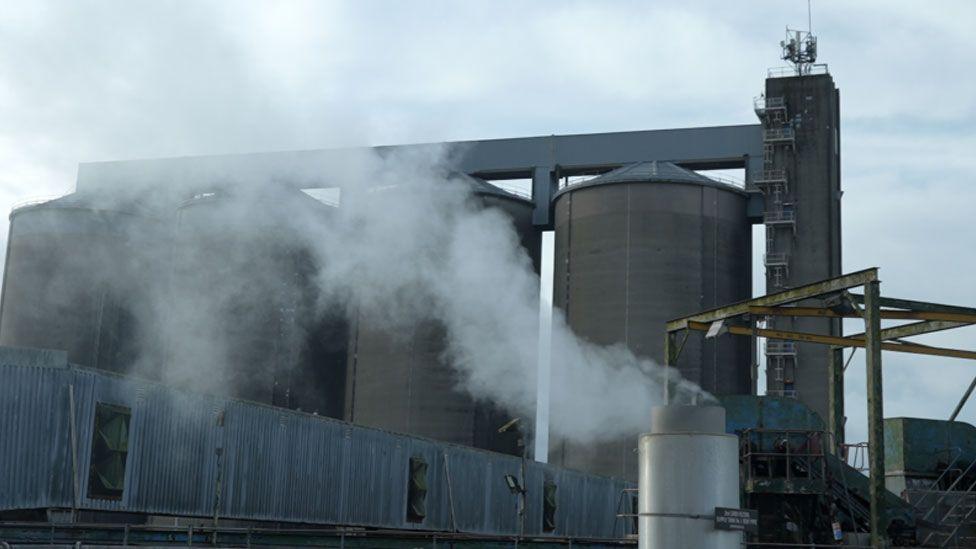
The factory processes about 2m tonnes of sugar beet, all produced by British farmers
When the factory opened in 1925, most of the crop arrived by rail and its workers lived on site.
Today, the factory receives between 600 and 700 lorry loads of sugar beet a day, according to Dan Green, British Sugar agriculture director.
"This pad behind us can hold up to 40,000 tonnes of sugar beet, and the factory behind us is processing up to 15,000 tonnes a day," he said.
Mr Simms explained that the factory also dealt with more than sugar, and it opened its anaerobic digestion plant in 2016, converting energy into electricity, with the excess exported to the National Grid.
"The mud and stones that come in stuck to the sugar beet, we'll turn those into top soil and aggregate for onward sale; once we've pulled the sugar out of the beet, we take the residual pulp and we'll either make energy out of it in our anaerobic digestion plant or we'll dry it for animal feed - we're the UK's biggest supplier of animal feed," he said.
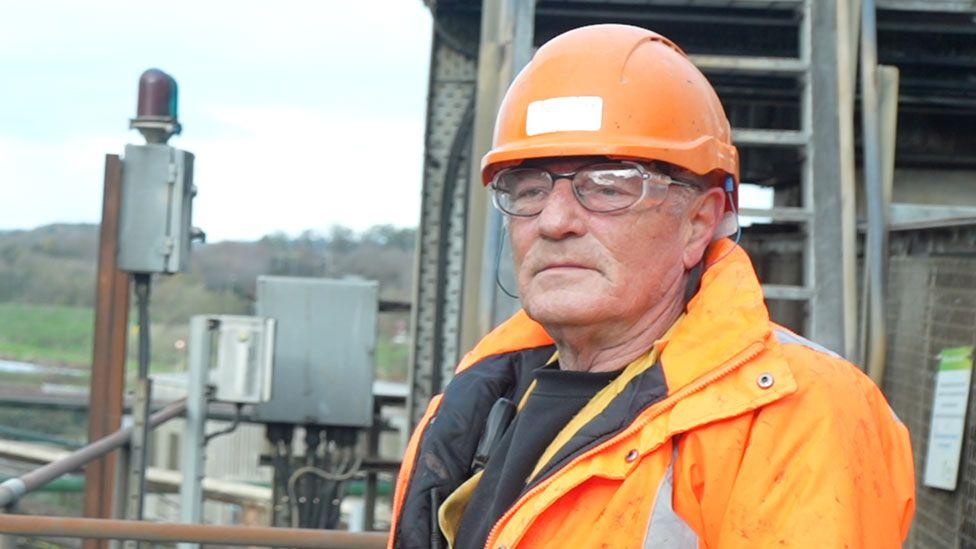
Malcolm Stevens is one of its longest-serving employees
Malcolm Stevens said he had seen a lot of changes since he began working for British Sugar 47 years ago, aged almost 19, and he enjoyed the variety his job offered.
"I've worked my way through all sorts, from driving to running process, to doing the controlling on the pack out here in the winter when it's freezing cold, or out here in the summer doing maintenance," he said.
Mr Stevens, whose son Harry also works for British Sugar, is hoping to retire in February.
"I've met some super people, management and workforce - I will miss the place," he added.
Listen to the factory tour: British Sugar turns 100
Get in touch
Do you have a story suggestion for Suffolk?
Follow Suffolk news on BBC Sounds, Facebook, external, Instagram, external and X, external.
Related topics
- Published30 May
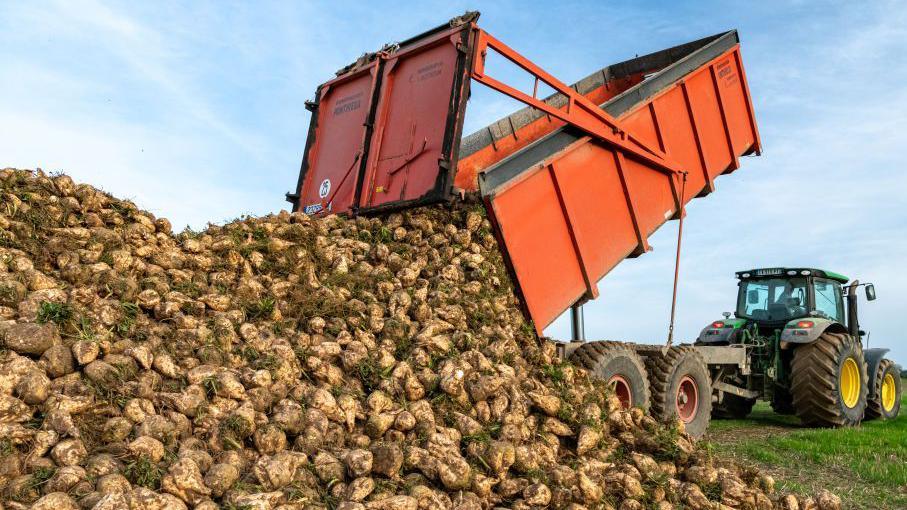
- Published29 November 2023

- Published8 October
